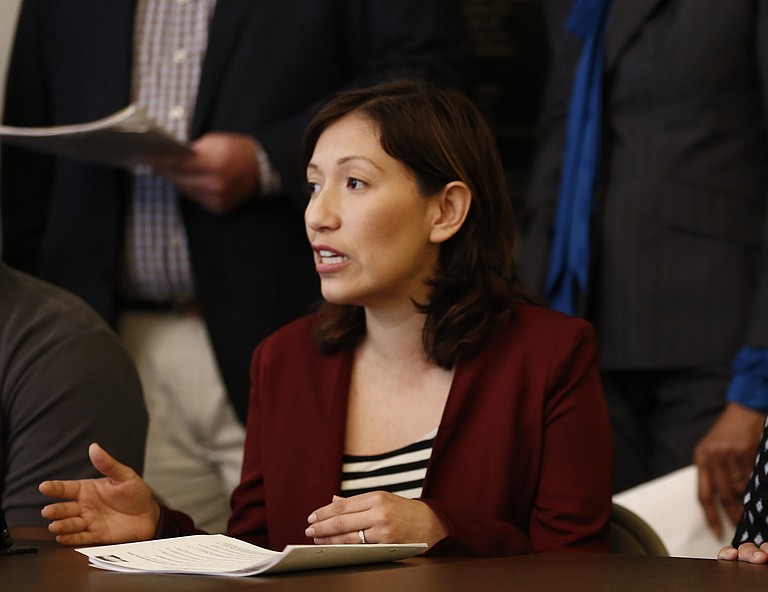Photo by Imani Khayyam.
Tuesday, March 24, 2015
Aida Martinez-Bone knows how it feels to be discriminated against as an immigrant.
Life for Martinez-Bone began in Chavarria, Morelos, Mexico, which is a small town located near Mexico City. After the farm her parents worked at went out of business, her father moved to California. When she was 12, her father sponsored her and her brother Rolando and sister Elsa to become U.S. residents along with him. In 2003, she enrolled at Mount St. Marry's University in Los Angeles, Calif., where she studied sociology and documentary film. It was there that she says she was "reborn as an activist."
In 2003, Martinez-Bone organized 100 undocumented people and their allies to talk to representatives at the State Capitol in Sacramento, Calif. A year later, she began interning with the immigrant parent section of the Mexican American Legal Defense and Educational Fund. After graduating from Mount Saint Marry's in 2007, Martinez-Bone became a labor organizer for Service Employees International Union United Health Care Workers.
Martinez moved to Mississippi in 2013, where she now collaborates with the Mississippi Immigrant Rights Alliance in their fight to get the state to expand Medicaid so that immigrants can get access to it.
"Undocumented people don't have a lot of choices," Martinez-Bone said. "Every time they get sick, they have to deal with over-the-counter medicine, and a lot of times, they only go to the emergency room when their condition is critical. They need to have access to preventative health care."
For Martinez-Bone, access to health care is intertwined with the language barrier. Words like copay, premiums and deductibles can make negotiating health-care plans hard enough for English speakers. When non-fluent speakers try to get a plan, understanding what's happening can be impossible. The Mississippi Department of Health reported that chronic illnesses like diabetes were responsible for four in every 1,000 deaths in the state in 2012, making multi-lingual health-care navigators crucial for immigrants.
Bone is also quick to point out the state's failure to ensure equal education for undocumented immigrants. "Currently, undocumented students are able to attend community colleges," Martinez-Bone said. "But they are charged out-of-state tuition. We just want to do the right thing. We want to get educated."
With laws that aren't aimed to protect her and a political environment that stereotypes her, Martinez-Bone often feels like an outsider, she says, but she has hope for the next generation.
"That is the key: Educate the young, and make sure they are informed about the issues, that they are not inheriting the ideas of their parents," she says. "... We want to help this country, so stop treating us like we are pests when we (too) contribute."

Comments
Use the comment form below to begin a discussion about this content.
Sign in to comment
Or login with:
OpenID